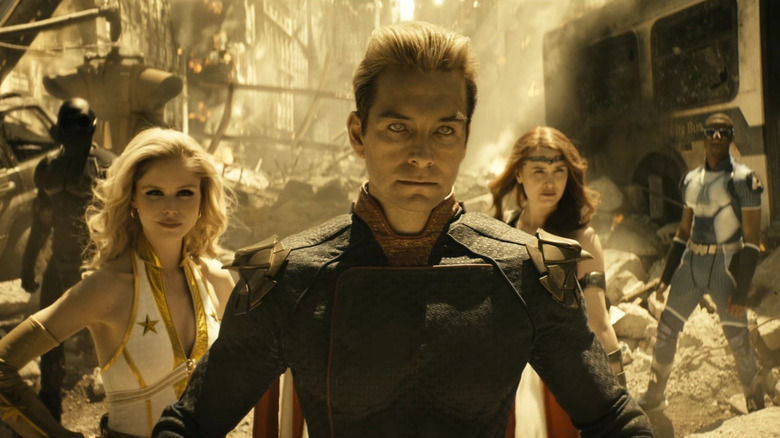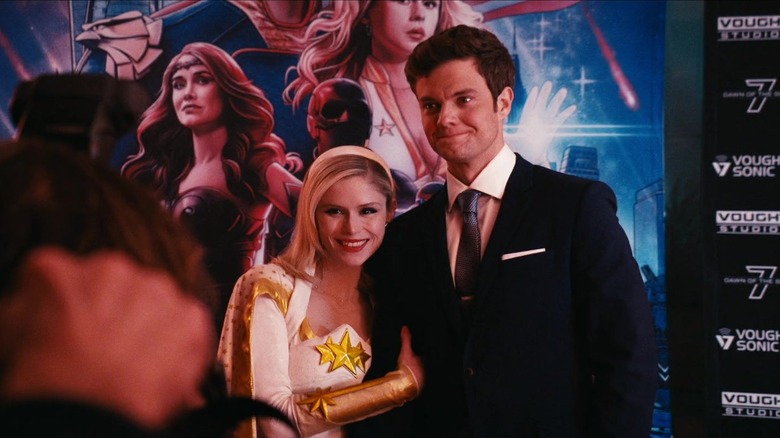Looper Survey: The Most Sympathetic Member Of The Seven From The Boys According To Fans
"The Boys" has been a massive hit for Amazon ever since its first season launched in 2019. Eric Kripke, who rose to fame for creating "Supernatural," serves as showrunner for "The Boys," and his adaptation of Garth Ennis and Darick Robertson's bestselling comic is one you can't miss.
The series takes place in a world where Supes, superpowered individuals, are a regular part of society. The people see them as heroes, and they work for the company Vought International, which markets and profits off of them. When not in the public eye, Supes are, for the most part, all greedy, corrupt, and horrible people. The Boys are a ragtag group of individuals who work in the shadows to bring down Vought and their glorified superhero team, The Seven, and expose the company's corruption.
The show is an excellent gore-filled depiction of what the corporate world would be like if the government introduced superheroes to the picture. Season 4 is already filming, and we can't wait to see more of these characters.
What makes "The Boys" such a compelling show are those characters. Although each season only has eight episodes, every character gets their time to shine with their own arcs that show their growth — or in some cases, lack thereof — and make them unique. Even though The Seven includes some of the worst people imaginable, the show masterfully weaves in moments for the viewers to feel sympathy for each and every one of them.
Looper surveyed over 600 of our readers, and they all agreed that this is the most sympathetic member of The Seven.
Starlight holds a place in the hearts of Looper readers
Looper fans agree that Starlight is the most sympathetic member of The Seven. In Looper's survey, nearly 30% of Looper readers chose Starlight, and it's a clear choice for watchers of the show. None of the other options came near Starlight's numbers, with A-Train coming in as the closest second with 17%, followed by Queen Maeve, Homelander, The Deep, and Black Noir.
It's no surprise that Starlight took first place in the survey. The character is very much the most human among The Seven members, and the show focuses on her struggles to remain sane in Vought's insane world. Fans and Starlight actress Erin Moriarity herself have stated their hopes for the character's future, including a life without Vought breathing down her neck.
While Looper readers feel sympathetic with Moriarty's Starlight, the actress has come under scrutiny from more toxic fans of "The Boys." Even though the entire show makes fun of internet trolls and toxic masculinity, it hasn't stopped some fans from attacking Moriarty for her character. The actress recently posted on her Instagram describing her situation. She wrote that misogynistic fans of "The Boys" have made her feel silenced, dehumanized, and paralyzed, much like her character feels in the show. It's disappointing, to say the least, that Moriarty has to put up with this kind of harassment.
Thankfully, she doesn't let the intense negative comments get to her. "This has only strengthened my empathy muscle and to anyone who comes at me: I see you, I don't hate you, I only empathize and forgive," Moriarty said in her post.

